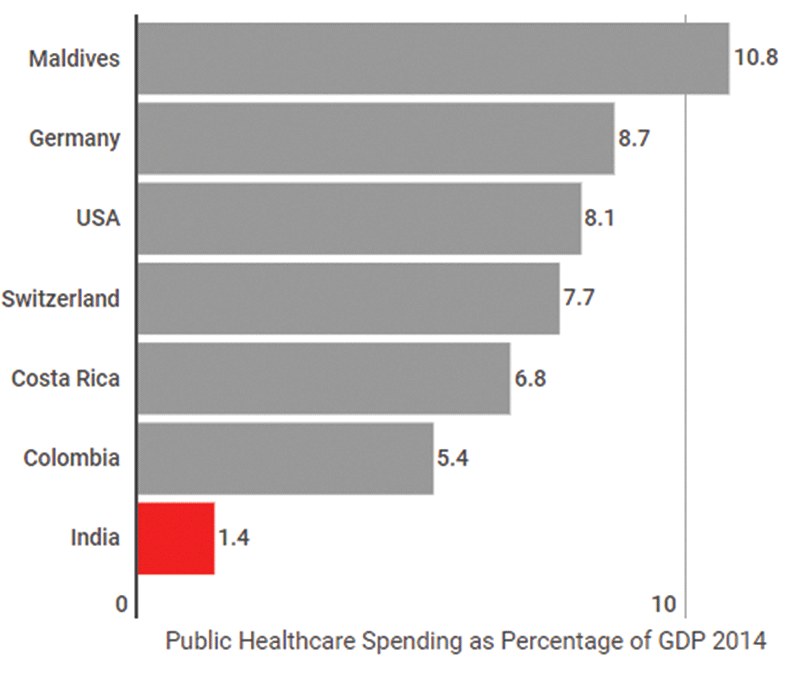India proposes “Modicare” as healthcare plan
India recently announced an unprecedentedly large public healthcare scheme proposal.
The proposed insurance plan would be the world’s grandest public healthcare system to date, announced to potentially cover the healthcare of over 100 million Indian families. According to BBC, each family would receive 500,000 rupees in annual medical coverage. Proponents of the system have dubbed the scheme, “Modicare,” after India’s Prime Minister Narendra Modi.
“This will be the world’s largest government-funded healthcare program,” said Finance Minister Arun Jaitley to Parliament. “The government is steadily but surely progressing towards a goal of universal health coverage.”
The announcement arrived alongside a new annual budget, which aims to improve health, education, social security and rural infrastructure in the country by the next general election.
Modicare is theorized to be popular with voters from rural areas. Currently, there is a significant disparity between rural and urban areas of India in relation to healthcare access.
India has an economically successful private hospital industry, which makes quality healthcare unavailable to rural citizens living below the poverty line.
Another reason the private healthcare industry thrives is because of lack of regulation within medical facilities. Within the Indian healthcare industry, illegal payments to doctors and nurses, even in “free” government hospitals, are exceedingly common.
“The one major experience I had with the Indian healthcare system was when I broke my arm,” said Early College student Evan Gorgen. “We had to wait in the waiting room for 6 hours because we didn’t know we had to pay up front … to bribe our way to the front of the line. Needless to say, not a very fun experience.”
This added cost has made the idea of healthcare even less accessible to residents around the nation.
“I just know my family (in India) doesn’t go to the doctor unless something is really bad, because … the healthcare is just so bad,” said Early College student Sharanya Ananth.
While the new plan is projected to improve the healthcare crisis, many are skeptical of the program’s successful implementation.
“The good thing is that health is now becoming a political imperative, but we are still sleepwalking into delivery architectures without serious regulatory capacity,” said Pratap Bhanu Mehta, chief of India’s Ashoka University, to BBC.









